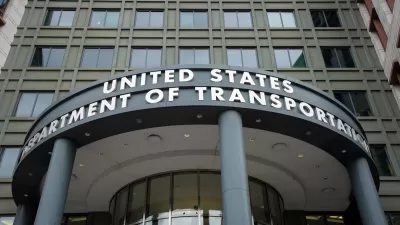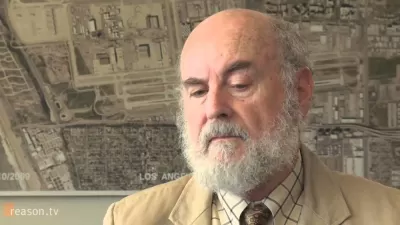A new study by Mobility Lab makes a strong case for unbundling parking from rent to inspire more sustainable transportation choices.

"Separating the cost to rent a parking space from the cost of renting an apartment or condo may be one of the most effective ways for real-estate developers and property managers to support a more sustainable transportation sector, according to Mobility Lab’s latest study on the robust transportation demand management programs in Arlington County, Virginia," according to an article by Paul Mackie.
Mobility Lab worked with Nelson\Nygaard, Weinberger & Associates, and Arlington County Commuter Services on the study, as "part of a long-term effort by the county to make the best use of existing infrastructure, focus growth in its walkable urban villages, and understand how new development affects how the transportation network is used."
According to Mackie's explanation of the study's findings, unbundling is one of the most effective transportation demand management tools available. "Where parking is bundled, meaning packaged in with the cost of renting, auto-ownership is higher and driving alone is 12.5 percent higher for commute trips and 40 percent higher for non-commute trips. Thus, the parking cost at work is strongly correlated with choosing to drive alone rather than taking most sustainable options, such as Metro, bus, walking, bicycling, carpooling, or teleworking," explains Mackie.
The source article includes more findings and more detail.
FULL STORY: “Unbundling” parking costs is a top way to promote transportation options

Manufactured Crisis: Losing the Nation’s Largest Source of Unsubsidized Affordable Housing
Manufactured housing communities have long been an affordable housing option for millions of people living in the U.S., but that affordability is disappearing rapidly. How did we get here?

Americans May Be Stuck — But Why?
Americans are moving a lot less than they once did, and that is a problem. While Yoni Applebaum, in his highly-publicized article Stuck, gets the reasons badly wrong, it's still important to ask: why are we moving so much less than before?

Research Shows More Roads = More Driving
A national study shows, once again, that increasing road supply induces additional vehicle travel, particularly over the long run.

Which US Rail Agencies Are Buying Zero-Emissions Trains?
U.S. rail agencies are slowly making the shift to zero-emissions trains, which can travel longer distances without refueling and reduce air pollution.

San Diego School District Approves Affordable Housing Plan
The district plans to build workforce housing for 10 percent of its employees in the next decade and explore other ways to contribute to housing development.

Lawsuit Aims to Stop NYC’s ‘City of Yes’ Zoning Reforms
A lawsuit brought by local lawmakers and community groups claims the plan failed to conduct a comprehensive environmental review.
Urban Design for Planners 1: Software Tools
This six-course series explores essential urban design concepts using open source software and equips planners with the tools they need to participate fully in the urban design process.
Planning for Universal Design
Learn the tools for implementing Universal Design in planning regulations.
City of Moreno Valley
Institute for Housing and Urban Development Studies (IHS)
City of Grandview
Harvard GSD Executive Education
NYU Wagner Graduate School of Public Service
City of Cambridge, Maryland
Newport County Development Council: Connect Greater Newport





























